The infrastructures that keep cities running efficiently should go nearly unnoticed to the people who pass through them every day. Things like smart lighting, smart traffic management, smart parking, intelligent waste management and more are such ingrained parts of daily life that the only time people take note of them is when they’re malfunctioning.
These systems, like virtually everything else today, require high-speed broadband to operate; they rely on digital input for automation and functionality. Companies like Mobile Smart City operate behind the scenes, developing and implementing technologies that allow users to go about their lives with ultimate convenience.
Consider the parking meter: they’re located every few feet on city streets, and many of them look like they haven’t been updated since the 1970s. They take quarters and, seemingly half the time, they’re out of order or otherwise malfunctioning.
Having to deal with an outdated parking meter like this takes time and effort out of the user’s day. It also requires them to carry quarters- which, in an age where virtually everyone carries cards instead of cash, can be a major inconvenience.
Thanks to state-of-the-art technology, a myriad of parking solutions have been developed that work with the user’s day rather than against it. One of these is the introduction of the Multi-Space Meter, which is a single beautifully-designed kiosk meant to serve every parking space in a given area (rather than providing one parking meter per spot, which takes up a considerable amount of space and requires frequent maintenance). It allows users a streamlined process for payment, meaning that they can move on with their day in seconds.
Perhaps most importantly, multi-space meters offer an integrated customer support center that’s available in real time to answer any questions about the kiosk, automatically opening a ticket to send out a local technician right away if it’s not working properly.
Even beyond the digital kiosk, mobile parking apps let users pay for parking simply by using their phone’s geolocation feature- it automatically detects the parking zone and specific space, letting the user tap to pay. This means no more running out of a meeting or appointment to go feed the meter, since it can be handled from the customer’s phone.
And for cities, universities, airports, and everywhere else parking meters are needed, there are also parking enforcement platforms that allow parking enforcement officers to issue tickets from a mobile enforcement app. The app also keeps officers’ safety in mind, featuring a button that can immediately call 911 if there’s any kind of emergency in the field.
Luis Garma, chairman of Mobile Smart City, explains that the technological developments that have led to their innovation in smart cities technology are only just the beginning. There’s plenty of focus on the tech industry, but it’s primarily centered around “cool” tech- like new apps, sensors, and connected devices. Garma states that much of our lives are orchestrated by technology, even things we don’t think about like smart lighting, public surveillance, and security systems.
Especially after the COVID-19 pandemic, virtually everything is being digitalized. This increased focus on technology in every aspect of our lives means increased convenience for consumers, but- Garma explains- “The more windows and doors you have in your house, the more risk there is of someone being able to enter. The same principle applies to technology. The more devices are connected to a network, the more chance there is for someone to find their way into that network and cause problems.”
“There is no doubt that the future will bring more technology, more automation, more digitalization. New technology means new solutions and new connectivity- which means a need for greater internet speeds, increased cyber security, and critical information for infrastructure protection.”
Dual focus on broadband availability and increased security, providing protection to consumers, is necessary in the continually evolving world of technology. Mobile Smart City aims to make life easier across the U.S. while also keeping people and organizations safe from cyber-attacks and data breaches.
To learn more about Mobile Smart City and their service Pango, visit mobilesmart.city or follow along on LinkedIn, Facebook, Twitter, and Instagram.


